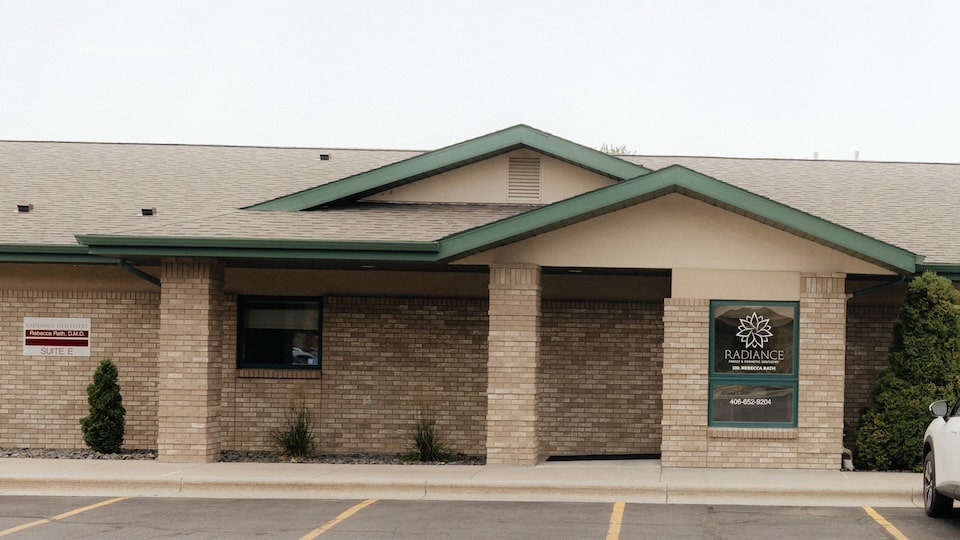When it comes to oral hygiene, sometimes people can become a little careless, forgetting to brush before bed or skipping flossing. However, this can lead to gingivitis.
What Is Gingivitis
Gingivitis is a mild and more easily reversible form of gum disease. This gum disease occurs when plaque is allowed to build up on your teeth. Plaque naturally occurs and is a sticky film that contains bacteria.
Not all plaque is bad. The film can help protect your teeth throughout the day, especially as you consume things with high acidity levels. However, you do need to remove the plaque daily through brushing and flossing as well as practice good preventative care, as plaque will produce toxins that will irritate your gums over time.
This irritation will lead your gums to become inflamed. This inflammation can present as either redness or a swollen and puffy appearance, which will often lead to your tender gums bleeding when pressed.
Gingivitis Symptoms And Signs
Many people are surprised when they come into Radiance Family & Cosmetic Dentistry and find out that they have gingivitis. But gingivitis is very common, and most Americans will experience this mild form of gum disease at some point in their lives.
To help you recognize when you have gingivitis so you can start taking steps to correct it, here are the most common symptoms and signs:
- Gums that bleed, especially if it happens when you floss or brush your teeth.
- Unexplained tooth sensitivity or pain, which occurs as gingivitis causes your gums to pull away from your teeth and expose your sensitive roots.
- Swollen, red gums.
- Gums that are sore and stay uncomfortably tender.
- Bad breath that you can’t get rid of no matter what since the bacteria in built-up plaque creates smelly waste products.
- Differences in your bite or loose teeth, which can mean your gum disease has progressed from gingivitis to periodontitis.
How Do You Get Gingivitis
One of the easiest ways to develop gingivitis is by slacking on your oral hygiene, from skipping your twice-daily toothbrushing routine and your biannual dental cleanings. But there are also other ways to trigger gingivitis, which are:
Stress – Being under stress can tax your immune system, making it easier for gum diseases like gingivitis to take hold.
Lingering plaque – Many people don’t brush for the recommended two minutes, which means it’s easy to miss cleaning off all of the plaque that has gathered on their teeth.
Nicotine use – Using nicotine products like cigarettes, chewing tobacco, and vaping can all hid the signs of gum disease and weaken your teeth so that plaque has an easier time adhering to the surface of your teeth.
Poor nutrition – Your body needs the right nutrients to help prevent infections, and without a balanced and nutritious diet, it is easier for gum disease to occur. Also, if you are pregnant, you will need to take extra care with your nutrition, as your developing child will leach nutrients you need to keep your gums and teeth healthy.
Chronic disease – Some chronic diseases such as cancer and diabetes can make it difficult for your body to fight off infections like gingivitis.
Hormone changes – When you experience hormonal fluctuations, your gums can become more sensitive and prone to infections.
Medication – There are a variety of medications, both prescription and over-the-counter, that can impact your oral health. Be sure to discuss your medications with Dr. Taylor when you come in for your preventative cleaning so you can see if you need to take extra steps to protect your oral health.
Ways To Prevent Gingivitis
As gingivitis is a mild form of gum disease, you can actually easily prevent it by implementing a steady oral hygiene routine.
- Brush twice a day – With a soft-bristled brush, clean your teeth twice a day. Be sure to brush gently along the gumline to ensure no plaque is left behind.
- Floss carefully once a day – Flossing can help you reach those place that your toothbrush can’t. It is best to do it at night before your last toothbrushing session. That way, any lodged food particles can be removed.
- Using anti-gingivitis mouthwash – Not only can rinsing with mouthwash help you have fresher breath, but mouthwash particularly formulated as anti-gingivitis can help prevent future infections.
- Replace your toothbrush – Every three months, you should be replacing your toothbrush since the bristles will start sticking out in the wrong directions and clean less.
- Come in for dental cleaning – Coming in for your biannual dental cleanings can help our dentist see if you have a gingivitis infection starting and help prevent it from progressing to more serious stages of gum disease.
To schedule your gingivitis-preventing biannual dental cleaning, contact us for an appointment with Dr. Taylor today.


